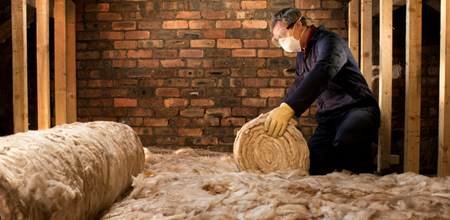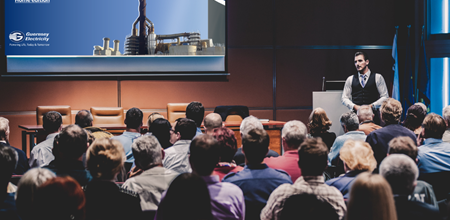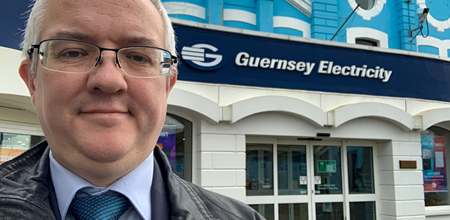This month, we're heading to the heart of our island's electricity network: the Vale power station control room. Meet Control Room Operator, Carl Streeting.
What is your role at Guernsey Electricity?
I’m one of seven Control Room Operators (CRO’s) here at Guernsey Electricity and contrary to what the job title may suggest, I don’t work in a spaceship – despite the office looking like something from Star Trek.
I’ve perhaps got the biggest office in the company though. As part of a three person shift team, from here I’ll remotely control most of the island’s electricity network, oversee the Vale power station site and top-up electricity using generators when islander’s need more power.
As the clocks have now officially sprung forward, we’ll be topping up less and less over the coming weeks until we can rely 100% on the electricity imported through the subsea cable from the European grid for a few months.
How does your job help keep the island running?
We need to cover power supply 24/7, and that means I need to be part of a ‘shift’ team rotating across the year. Whenever I’m on shift, I work alongside my Shift Engineer and Shift Operator to keep Guernsey’s homes warm, their lights on and Wi-Fi running.
For example, we collectively predict ‘load patterns’ using historical data. This means we need to look at previous energy usage on the island and use that information to help decide where and when we may need to fire up the power station generators to meet islander’s electricity demand. If this predicted demand is more than our 60 megawatt (MW) importation cable can supply, that’s when I’ll need to switch on the fossil-fuel generators to top-up demand.
Not everything can work perfectly though, so a big part of my job is to respond quickly to alarms that indicate a cable fault somewhere in Guernsey, or an issue at the power station itself. This is a really important part of keeping the island running as we need to get relevant teams dispatched and on the ground as soon as possible to keep any power supply cuts to a minimum.
What other industries have you worked in?
I started out as an electrician at the Princess Elizabeth Hospital (PEH) where I was trained to maintain the hospital’s electrical equipment and its various properties. There is still a part of my electrician training that springs into action when I receive calls from customers after hours asking why their power supply is off – thankfully it’s sometimes just a case of switching the trip switch back on.
Now I’m working at GEL, I not only oversee the electricity supplying my previous workplace, but the island’s entire electricity grid.
What does a typical day (or week) look like?
My day starts at either 7am, 2pm or 10pm. To keep cover 24/7, we’ll relay the issues amongst the teams and discuss the previous shift during our ‘shift handover.’ Once that CRO has left the building, the responsibility then sits with me.
First, I’ll check the ‘load’ predictions – how much electricity our systems think we’ll need to import and/or generate – and coordinate with my shift engineer about timings and the number of engines needed to cover predicted demand if a top-up is needed. We also get a lot of visits from contractors working on e.g. scaffolding, our fuel tank farms, security upgrades and water maintenance, so I’m responsible for booking them in and out of the site too.
When it’s outside normal office hours, it’s me who customers speak to if they have an issue with their power supply. If I can’t help them over the phone, I’ll organise the on-call electrician or cable engineers to go out, investigate and fix the problem.
We use a Supervisory Control and Data Acquisition* (SCADA) system to help us watch over and control our plant machinery, and part of my job is to constantly keep tabs on the data it collects from various sensors and devices. This means I can see what’s going on and adjust the parameters to create a good balance of power generation to make sure we maximise our low-carbon imported energy from the European grid.
Going back to the job title, as I’m in the control room, I’m usually the first to hear about a problem – or the first to hear one approaching.
When an alarm sounds, the walkie talkies come to life and I stay in touch with the rest of my shift team to relay information that may be causing issues during our shift. Everyone can then stay in the loop and we’ll coordinate like a well-oiled machine.
When we turn on or shut down our electricity generators, this actually changes the voltage across both Guernsey and Jersey, as we share the subsea power connection through the Channel Island’s Electricity Grid (CIEG). That’s why I also need to speak regularly with our CRO counterparts over at Jersey Electricity to help coordinate both island’s power supply.
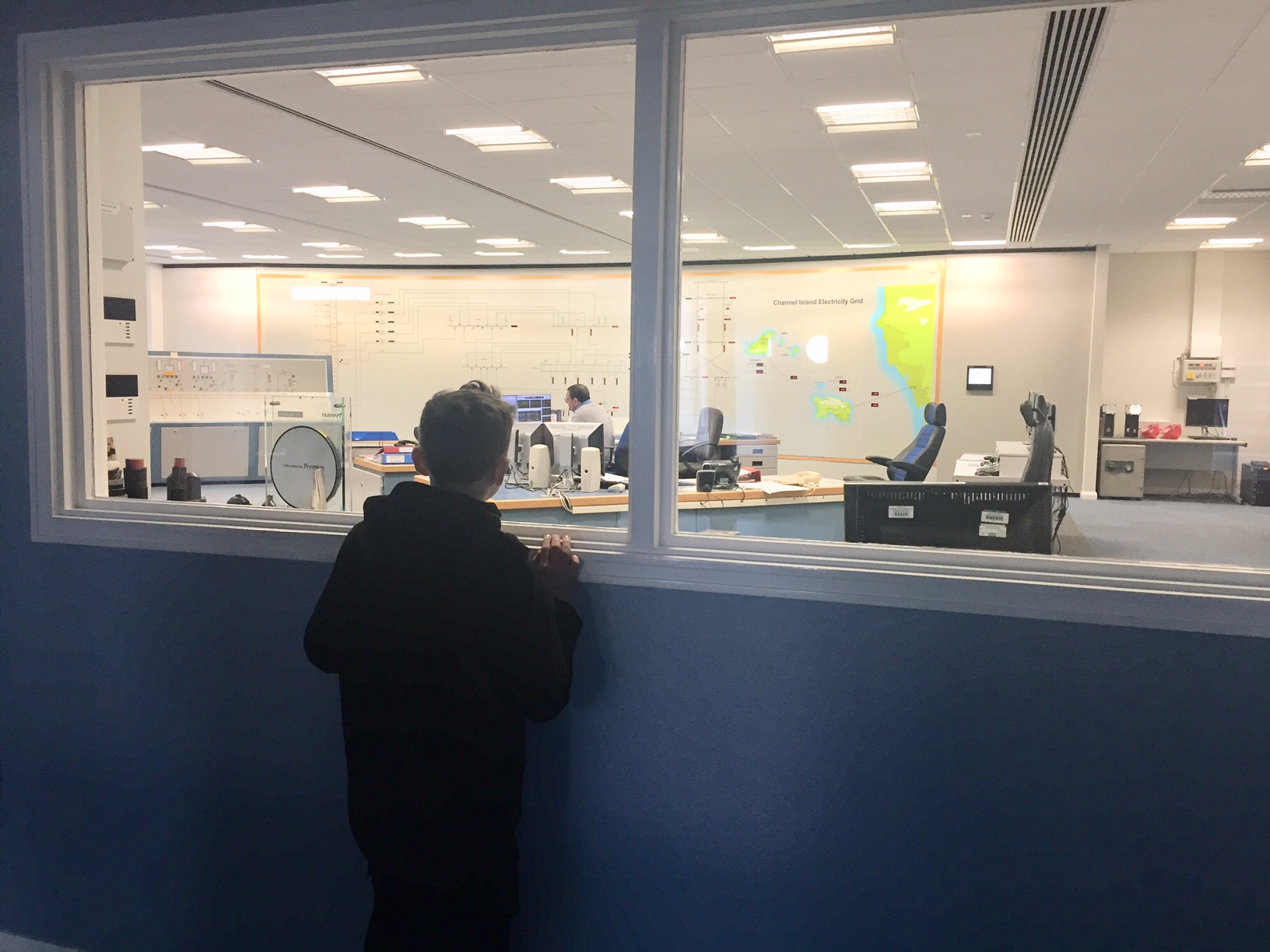
When the end of my shift arrives, I’ll pass on any important information the next CRO needs to know during my second ‘shift handover’ of the day.
That’s all in a typical shift. But with the peaks and troughs of modern life and working with machinery, technology and people, in reality every shift has its own story.
*SCADA is a system to monitor and control industrial processes like those in factories or power plants by collecting real-time data from sensors and equipment to ensure everything runs smoothly and efficiently.
How does electricity demand change as the warmer weather begins, and how does this impact our use of the power station?
The station is a much quieter place to work during the summer months, and that’s simply because people use less electricity.
We use the word ‘subsea cable’ or ‘interconnector’ a lot, as it quickly summarises how we bring in low-carbon electricity from the European grid. This cable imports up to 60MW of energy from sources such as hydro, wind and solar, and anything above this 60MW limit needs to be ‘topped-up’ by our on-island fossil-fuel generators.
During colder months and shorter days, Guernsey’s energy demand is high, especially as more and more people move to electric heating.
In contrast, usually around the clock change when spring comes out to play, the longer, lighter days mean electricity demand drops significantly. If you’re a fan of numbers, you’ll be interested to know that in 2025, the 22nd March was the first point that year we did not need to generate on-site to keep up with demand – peaking instead at 54.5MW. Usually, the summer dips down further to around a 40MW peak, meaning there is plenty of clean electricity to go around. When we can keep below the 60MW line, we don’t need to use fossil-fuels to power the island.
But even during summer, you’ll still sometimes see the power station chimneys at work for a few minutes.
Our weekly test runs help make sure we’ve got a back-up electricity supply if ever we need one, and the summer break gives our busy engines the chance to take some time out as we focus on any essential maintenance or repair work needed after a winter generating.
Image below shows the island's electricity demand, see 'total generated output' which reached 54.3MW. As this doesn't surpass the capacity of our subsea cable (60MW), our generators at the Vale power station wouldn't be needed as a 'top-up'.

In contrast, the below image shows the island's electricity demand on a cold, winter evening at 6pm (peak time), reaching 83.3MW! This 'peak' corresponds with the time islander's are making dinner, finishing work, and using electrical appliances.

What is your proudest achievement so far?
This has to be when my now teenage daughter was unexpectedly born at home.
Without any warning, my wife woke in the middle of the night and realised she was in labour. With no time to get to hospital, within minutes we had a new baby daughter born at home. As you can imagine I was really anxious and just hoped everything was going to be ok as I ran around getting blankets to wrap her in.
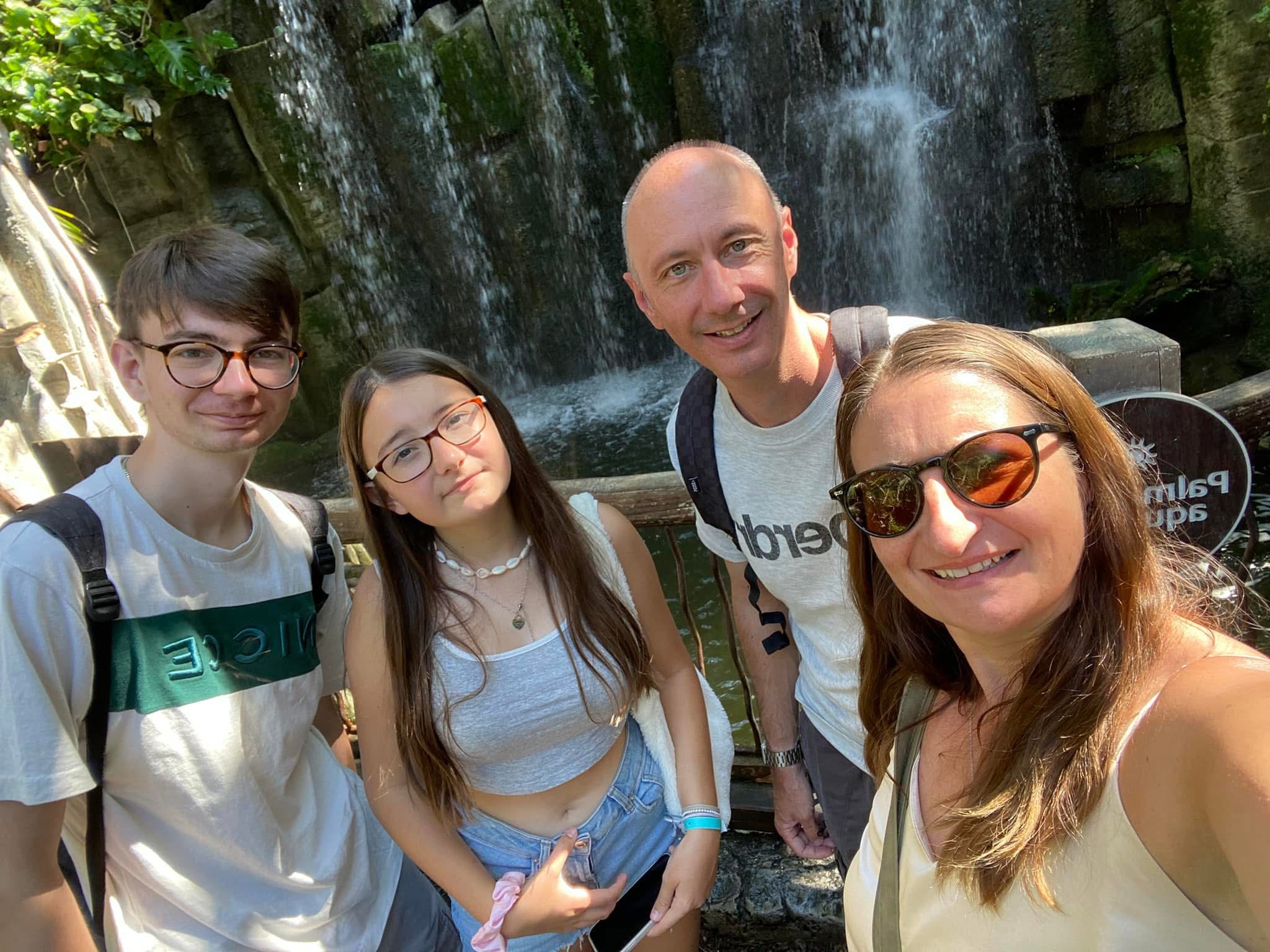
What was your dream job growing up? Or what did you want to do when you grew up?
Certainly not a Midwife!
I never really had an idea what I wanted to do when I was younger. So, when the opportunity came along to train as an electrician, I took it and I’m glad I did.
What is the most unusual thing about your job and how would you describe it to someone who knows nothing about it?
After swapping from regular daytime work, it was a bit unusual at first to get up and go to work at 10pm, stay awake all night, then go home to bed as the sun comes up. But surprisingly, it’s something you can adjust to quickly.
Before starting here, I might have thought this job meant sitting in a chair looking at computer screens for hours. As it turns out, there is so much more to it.
I’d say my job is very unique as I get to oversee and control all of Guernsey’s electricity demand, and the common goal in my small team of three is to keep our island home powered.
As electricity is needed constantly, we also need to work on Christmas Day, Boxing Day, and all other public holidays, which follow a cycle of early, late and night shifts.
If you could swap jobs with anyone for a day- who would it be and why?
I would like to work behind the scenes on a film set or tv show for a day. I have always wondered how they build the sets and scenes and what it’s like to do so.
I’d love to work behind-the-scenes on a film set or TV show for a day. It would fascinate me to see how entire worlds can be built from sets and how the moving parts all work together to bring scenes to life convincingly.
Who inspires you the most?
If we are talking famous figures, then Nikola Tesla or Thomas Edison are pioneers in the electrical world. But a bit closer to home I would say my parents. They have worked hard their whole lives and are still on hand to give great advice when I need it.
What advice would you give your younger self?
I would tell him to go and grab everything with both hands and do whatever he wants to, because life is too short.
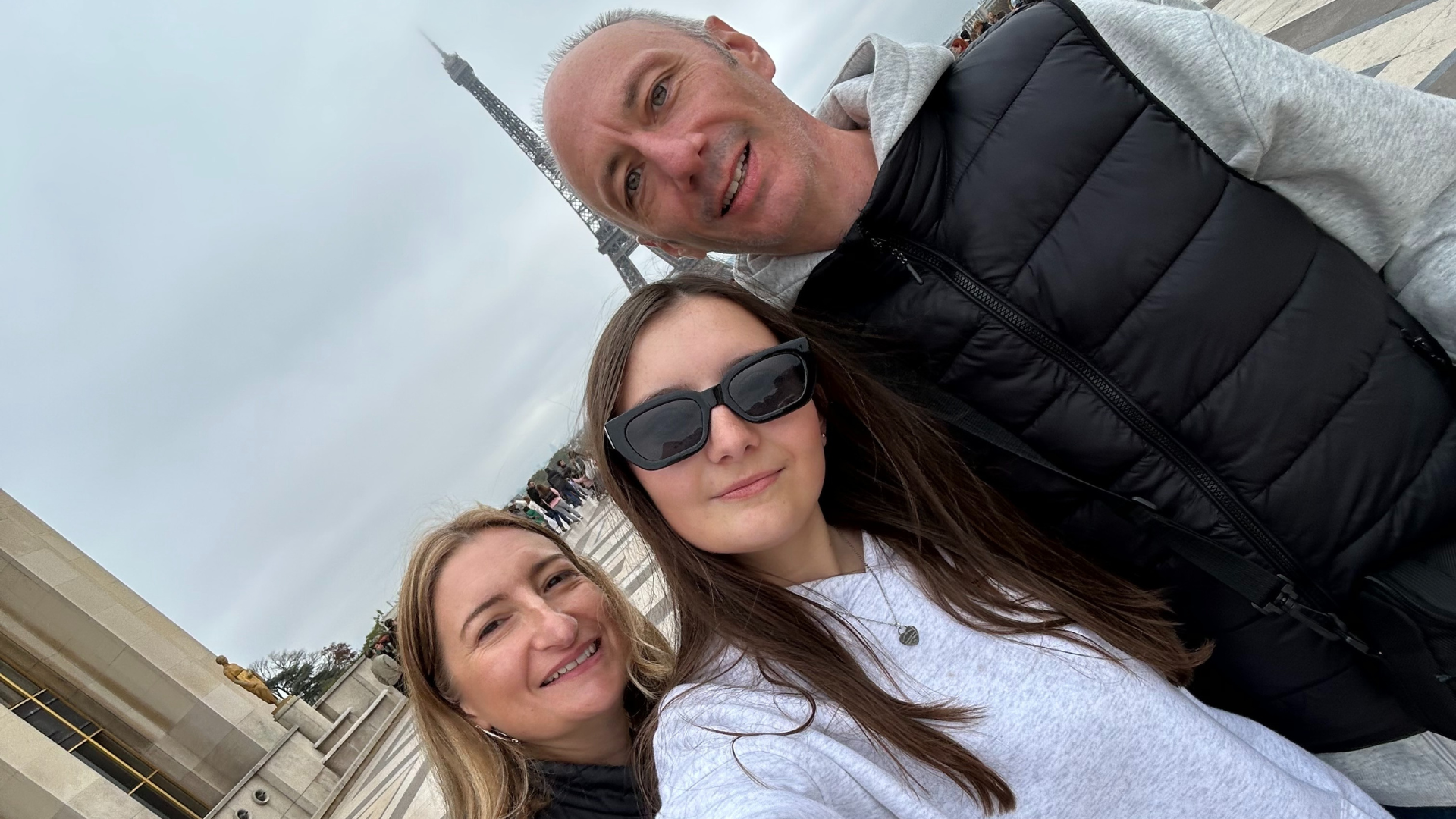
What are the best benefits offered by GEL in your opinion?
I’d say the best benefit is the pension scheme and the health insurance as they’re both very worthwhile.
Bonus question – what is your favourite podcast and why?
I enjoy watching The Traitors on BBC 1, so I’m also liking Traitors – Uncloaked podcast, because it’s a light-hearted, comical debrief of the main show.









